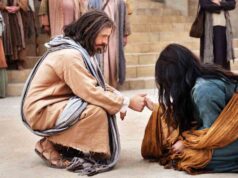By Pr Ben Odongo
In our second part of this theme, let us start by looking at this question: Does the non-payment of tithe mean robbing God? The ideology has its basis from a text in the Old Testament books of Malachi 3:8-10 (Will a man rob God?
Yet ye have robbed me. But ye say, Wherein have we robbed thee? In tithes and offerings. Ye are cursed with a curse: for ye have robbed me, even this whole nation.
Bring ye all the tithes into the storehouse, that there may be meat in mine house…) and Numbers 18:25-32 (And the Lord spake unto Moses, saying, Thus speak unto the Levites, and say unto them, When ye take of the children of Israel the tithes which
I have given you from them for your inheritance, then ye shall offer up an heave offering of it for the Lord, even a tenth part of the tithe…).
Who should tithe?
Note: the scripture will never mean today what it never meant when it was fi rst written. Thus, only the Levites were to bring 10 per cent to the Lord.
The Israelites were to give 10 per cent to the Levites. The Levites’ sole responsibility was to attend to the tabernacle. That’s why the Israelites were asked to tithe to the Levites, while the Levites tithed to God. You may have to ask: Who, then, was prophet Malachi referring to in Malachi 3? Note that Malachi, Zachariah and Haggai spoke about the Temple.
They came after Nehemiah; so, everything they said was in the same dispensation. This was after they had returned from exile, according to Nehemiah 13:4-13. The account above shows they were restoring the practice of the Levites and the priesthood after returning from exile because at that time the tithe was restricted to the Promised Land – Canaan.
To whom was Malachi writing?
The basic fact that must be established is who was the book of Malachi written to?
The first audience in Malachi 1:6, Malachi 2 and 3 were priests. So the instructions were to the Levites because they were mandated to bring tithes into the storehouse.
In verse 5, Malachi speaks to the whole nation about not taking care of the oppressed, widows, fatherless and the poor. In Malachi 3:9-10, the prophet asks: “Will a man rob God?” It is clear he was addressing selfi shness. The word “meat” was translated from the word “tereph” in the Hebrew lexicon.
It majorly refers to leaves. It is like vegetarian food, though it includes other foods. Thus the tithe was not money but food. The word meat refers to food. The word “storehouse” was translated from the Hebrew word “oster” which means a treasury, a safe place where they keep food.
It is also described in Deuteronomy 28:12, Deuteronomy 32:34 and 1Kings7:51. It is built in such a way that it can preserve food. The word “house” was translated from the word “bayith”. It means a temple.
These words were used literally to refer to physical things. The period in which tithes are brought is the same period the priests are present to minister on their behalf. Since the Levites were not working, they would only eat food brought by the Jews. Everything is physically explained.
The word “rob” was translated from the Hebrew word “qaba” which means to cheat someone of something; that is, not to give what belongs to another. It was the same word used in Proverbs 22:23 as “spoil”. Thus, to “rob” means to spoil, to circumvent and cheat. It means not to give to another what is deserved.
In this context, to “rob” is different from describing a thief or robber. A thief breaks into ahouse to steal or take something, but these are two different things. In other words, the prophet meant that the Levites were not bringing the tithe (food) to the storehouse since it was their mandate.
So robbing God referred to cheating or depriving the priests of what they were entitled to. The instruction was, therefore, not to or for the believer in Christ Jesus (Christian).
What tithing comprises
Tithing was never money or income-based; tithing was land-based. The Jews, under the law, were not obliged to give 10 per cent of their incomes! This simple fact is enough to demystify the unscriptural doctrine that God demands you pay 10 per cent of your income or be cursed.
During the period of the Mosaic Law, God commanded people to bring a tenth of what they produced from land regardless of the income they received from it. Tithing wasn’t incomebased before or after the law, and the tithe was not money! In fact, it was against the law to sell the tithe.
One was to bring the produce, not what the produce was worth (Leviticus 27:28). One would sell the tithe only if the tabernacle was far. But after reaching at the temple, one was required to again convert the money back into the titheable commodity and then eat that very tithe from there (Deuteronomy 14:24-26). All said, any tithe in the form of money is man’s invention and not God’s. Watch out for part 3.





















